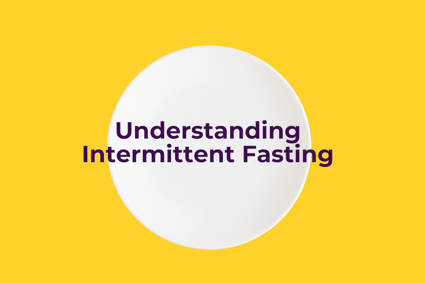 Diets are all the rage in the new year, but one particular diet technique is gaining traction as a way to boost overall health while also losing weight.
Diets are all the rage in the new year, but one particular diet technique is gaining traction as a way to boost overall health while also losing weight.
Enter intermittent fasting.
A new study published in the New England Journal of Medicine found intermittent fasting is one way to maintain a healthier lifestyle. If you’re looking to lose weight, you may want to turn to intermittent fasting.
But not so fast.
As with all diets, there are potential risk factors that some individuals may need to keep in mind. Consulting with a health professional will help you decide if the pros outweigh the cons.
Here’s a look at what intermittent fasting is, the benefits of intermittent fasting, and potential risk factors to be aware of before trying this trending diet.
Want to know more? Read on.
What’s Intermittent Fasting?
As one of the most talked-about diets right now, intermittent fasting has a few different approaches. Fasting is the act of refraining from eating food for a certain period of time. While its history dates back to early (and current) religious practices as well, it has also become a popular method for losing weight among other health benefits.
The two most popular intermittent fasting examples are called 5:2 and 16:8.
Here’s a look at how they work:
- 5:2 intermittent fasting - Five days a week you’ll eat normally and two days you’ll fast (or stick to between 500-600 calories per day).
- 16:8 intermittent fasting - This is a style where you eat all your day’s meals in an eight-hour period and then fast for 16 hours at a time.
During a “fast” time, staying hydrated is a must. This is important to eliminate toxins, minimize headaches, and mimic the feeling of being “full.” Calorie-free beverages like water, unsweetened tea and coffee may help control your appetite during challenging fasting periods.
What are the Benefits of Intermittent Fasting?
In the Dec. 26 issue of The New England Journal of Medicine, neuroscientist Dr. Mark Mattson — who has studied intermittent fasting for 25 years — says evidence supports that it can be a “part of a healthy lifestyle.” The study found that participants had a decreased resting heart rate, blood pressure, and blood lipid levels after intermittent fasting.
Here are a few benefits of intermittent fasting:
- It’s easy to follow - This particular diet can be helpful for those struggling with being overweight or for people who are at risk for diabetes, according to some studies.
- No calorie counting necessary - If you’re not one to count calories but still need to lose weight, intermittent fasting may be for you.
- Reduces inflammation levels - A Nutrition Research study showed those who were fasting for Ramadan (the Muslim holiday) had lower-than-usual inflammatory markers, body fat, and body weight. Participants fasted from sunrise to sunset and ate overnight.
- Slows aging - Additionally, one Harvard research study revealed intermittent fasting may slow the aging process through lower blood pressure and reduced cholesterol.
- Brain health may improve - A University of Toronto study completed in April 2019 found that nonobese, healthy adults who maintained a calorie-restricted diet for two years improved their memory during cognitive testing. More testing is needed on the positive impact of intermittent fasting on the brain, but it looks promising, Dr. Mattson says.
Are There Any Risks Associated With Intermittent Fasting?
One 2017 review found intermittent fasting periods work well for obese individuals, but not those who already have a low weight. If you’re underweight already, side effects of intermittent fasting may include:
- Tension
- Depression
- Anger
- Fatigue
- Confusion
- Extreme hunger
- Low energy levels
- Binge eating behavior
Who shouldn’t participate in intermittent fasting? It’s not recommended for those who suffer from eating disorders, mental health conditions, type 1 diabetes, or breastfeeding or pregnant women.
What Does Science Say About Intermittent Fasting?
Since food is the body’s fuel, it’s important to know your body well and understand how it’s impacted by diets, but especially a fasting diet. Before starting any new diet, be sure to consult with a health professional to ensure it’s safe to do so.
Because intermittent fasting isn’t for everyone, here are some pros and cons to consider:
Pros of Intermittent Fasting
Reduce certain health conditions - Heart disease and your risk of diabetes may be reduced with intermittent fasting. One study was small with just three men involved, but all three were able to get off insulin after following an intermittent fasting diet.
Body fat loss is possible - A 2016 Journal of Translational Medicine study found males doing a resistance training program combined with intermittent “fasting resulted in a significant loss of body fat.”
Lower cholesterol levels - A short three-week study published by Obesity found that alternate-day fasting could potentially help lower LDL cholesterol and total cholesterol. That’s when it was combined with endurance exercise. The study also documented that intermittent fasting reduced triglycerides — also known as the fats in the blood — that can cause a heart attack, stroke, and heart disease.
Cons of Intermittent Fasting
Sleepless nights may arise - According to some studies, intermittent fasting may disrupt your sleep cycle. Some 2018 research uncovered fasting can decrease your REM sleep, causing drowsiness during the day.
Could cause work issues - If you get “hangry” when you don’t eat regularly, this could cause personal and professional issues due to being irritable thanks to the calorie restriction during morning fasting periods.
Increases cortisol levels - While fasting can be great for certain health conditions, food deprivation — even for short periods of time — can increase the stress hormone cortisol.
May increase obsessive food thoughts - If you’ve had any issues with eating disorders in the past, steer clear of intermittent fasting. This diet will make you preoccupied with thoughts of food and impact your relationship with eating.
Final Considerations for Intermittent Fasting
If you’re the type of person who gets angry when you skip a meal, you may want to keep your intermittent fasting to the weekends (i.e. the 5:2 method) to prevent any snaps at coworkers when your head is foggy from lack of food.
Like a new exercise routine, experts say this sort of dieting method can take a few weeks or months to take hold and get more comfortable. Healthy eating during your periods of consuming calories is a must, too, for success.
Aside from the major benefits of losing weight and reducing issues like heart disease, there are some studies in the works that are looking at if intermittent cancer could potentially cure cancer.
Ultimately, this diet is for you if you’re up for a challenge.
If you’re still clinging to your New Year’s resolution to eat healthier and diet, this may be a diet to consider. Starting out slow — and under the supervision of a professional healthcare provider — is the best way to approach it.
Have you tried intermittent fasting? What do you feel are the biggest benefits of intermittent fasting? Let us know in the comments below!
Ready to help your employees achieve their best health yet? Learn how to plan a health fair to give them all the resources they need in one spot! Check out our free guide here.



